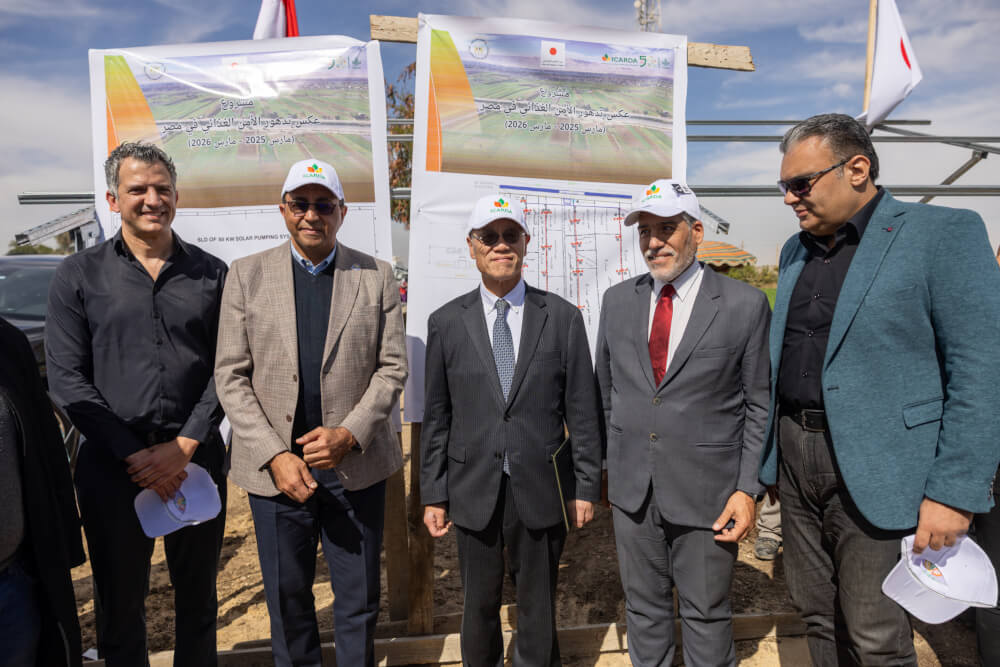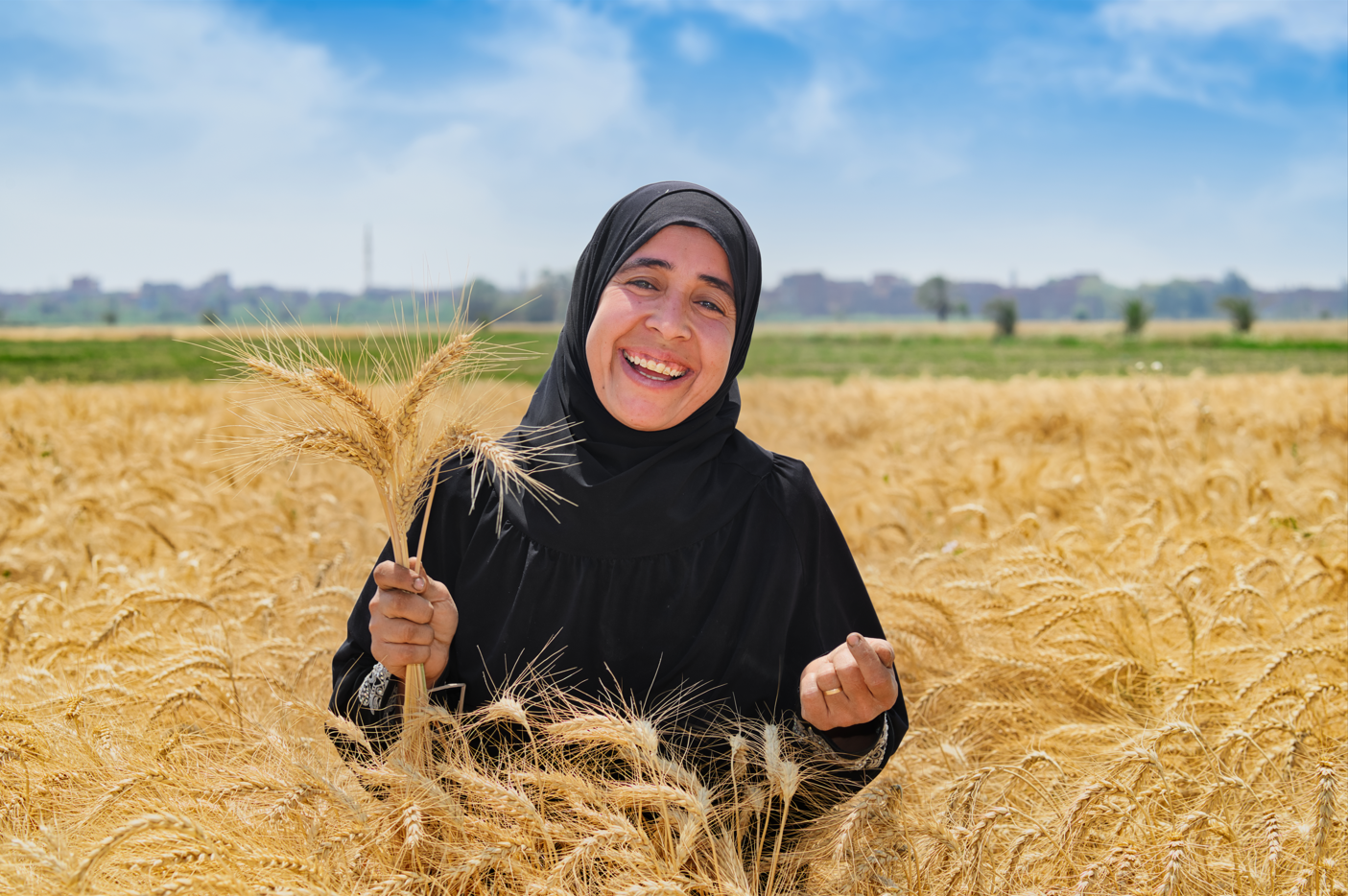New Agricultural Opportunities on Egypt’s North Coast
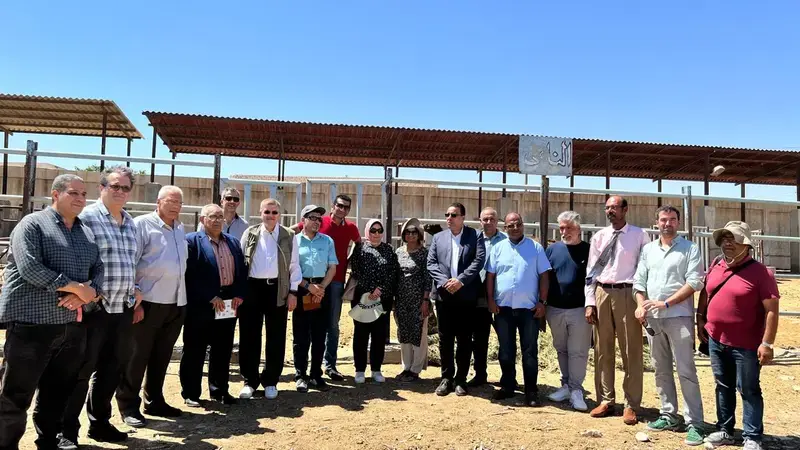
On 14–15 July, a delegation of ICARDA and ARC-Egypt scientists embarked on an exploratory visit to Marsa Matrouh, located on Egypt’s northwestern Mediterranean coast. The visit aimed to enhance understanding of the area’s natural environment, soil types, existing farming practices, and production systems, while identifying opportunities to introduce new farming system innovations. Building on our longstanding collaboration and previous achievements in Marsa Matrouh in the early 2000s, Egypt seeks to continue its partnership with ICARDA by advancing modern water harvesting techniques, introducing improved varieties for rainfed agriculture —especially barley— and strengthening small ruminant and camel breeding efforts.
The delegation began their tour at ARC’s Marsa Matrouh station, where Eng. Ahmed Youssef Abo El Kamal, Undersecretary at Egypt’s Ministry of Agriculture and Land Reclamation (MALR), welcomed the group and provided a briefing on the region’s agricultural landscape and current efforts to supply farmers with seeds of improved crop varieties.
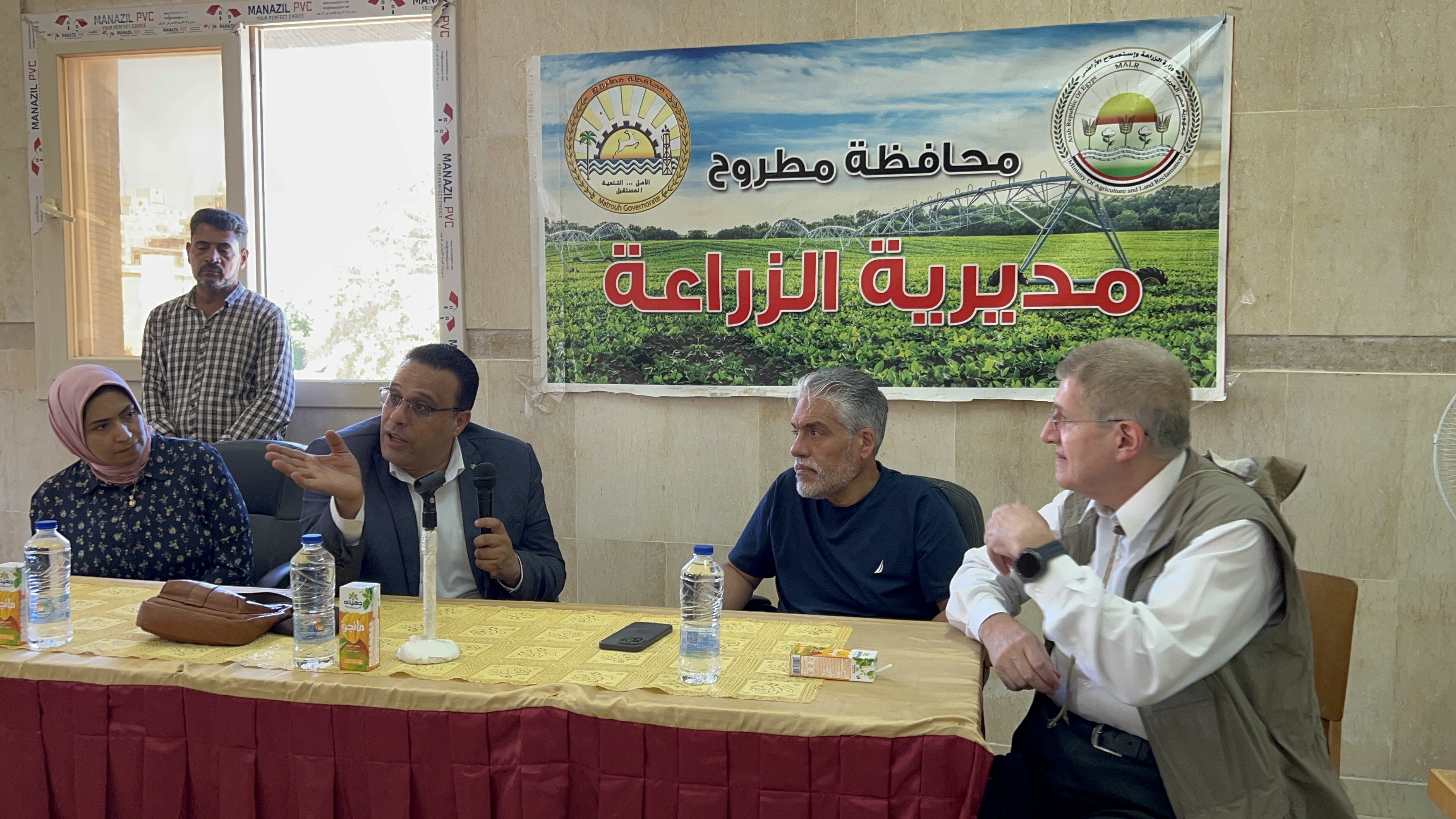
“The main challenge for Marsa Matrouh is irregular rainfall and water scarcity, which threaten barley and wheat cultivation. We are pleased to collaborate with ICARDA on developing improved crop varieties that can withstand drought and heat, crucial for sustaining agricultural productivity in this desert environment,” commented Eng. Ahmed Youssef Abo el Kamal.
Following the briefing, the delegation participated in a meet-and-greet session with local farmers. It was an excellent opportunity to gain a deeper understanding of their needs, challenges, and aspirations.

Farmers emphasized the cultural significance and economic importance of wheat and barley cultivation as a vital part of their heritage that they want to preserve for future generations. Yet in this desert environment, water scarcity remains their primary challenge, and they expressed a strong need for more investment in sustainable water management innovations.
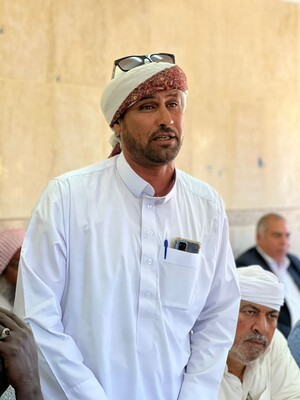
“What we’re looking for now is to expand our farmland with improved wheat and barley varieties, use modern water management techniques, and get the training we need,” said one local farmer.
The field visit continued with an exploration of small ruminant research in the region, focusing on assessments of heat stress in sheep. Scientists observed breeds that show a high tolerance to extreme heat conditions and can graze in harsh desert conditions.
At a farmer demonstration field, one farmer shared his experiences and introduced his agricultural activities to the ICARDA team.
One of the most promising stops on the visit was a demonstration site showcasing a solar-powered hybrid desalination system. This cutting-edge technology is a potential game-changer in a region where every drop of water counts.
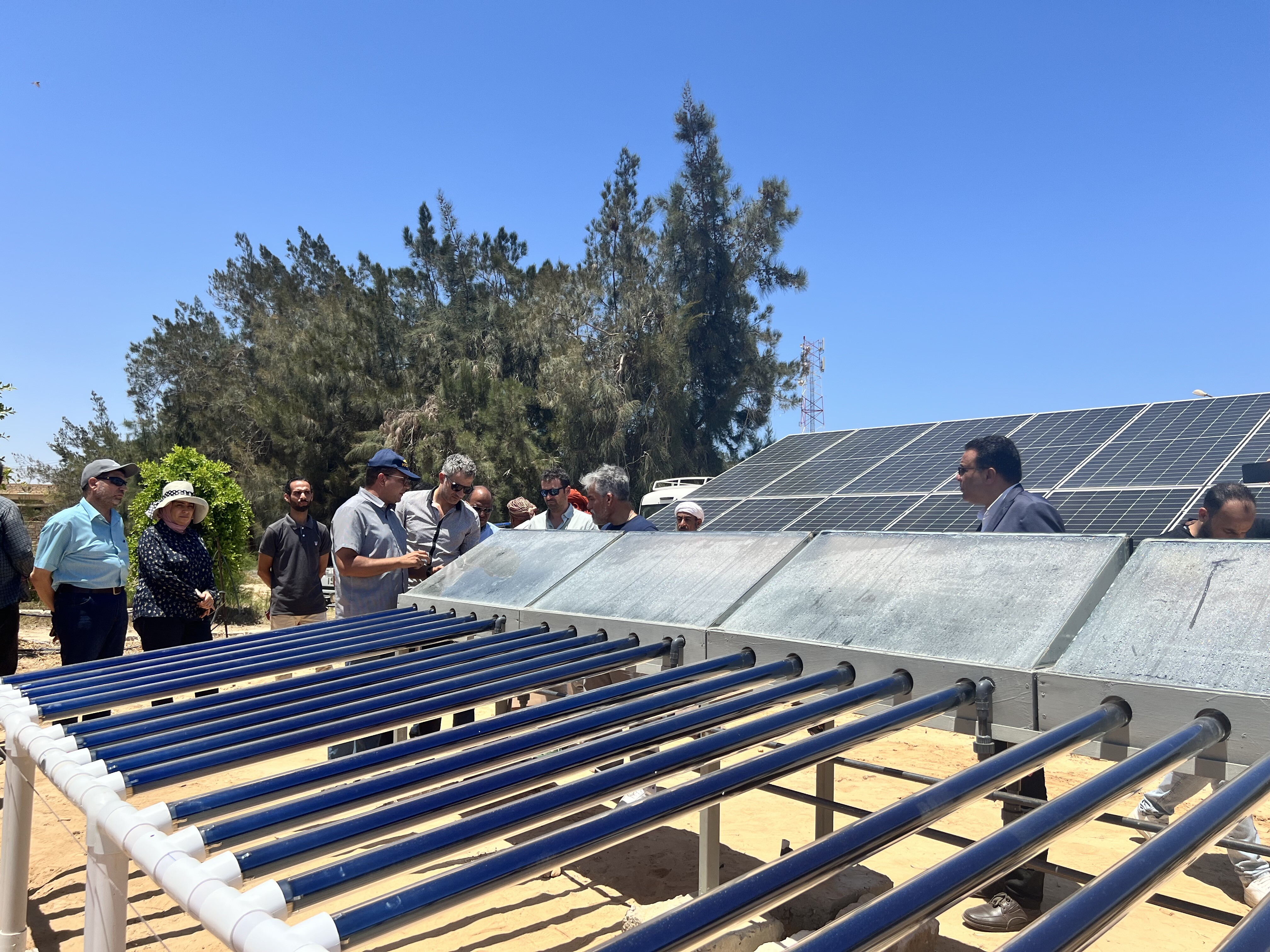
Throughout the visit, the delegation identified various areas of potential collaboration, from opportunities related to climate-resilient crops, to efficient water use, to livestock systems that can increase agricultural productivity in this ever-harsher desert environment.
As Egypt works to transform its challenging desert landscapes into valuable food and agricultural resources for its population, ICARDA, hand in hand with national partners, remains committed to delivering climate-resilient innovations to support the Egyptian government’s efforts to improve agricultural productivity and sustainable livelihoods in dry regions.
ICARDA delegation:
- Augusto Becerra, Deputy Director General-Research
- Aladdin Hamwieh, Senior Scientist Breeder, Biotechnologist/Country Coordinator – Egypt
- Michael Baum, Research Team Leader - Breeding and Scaling Improved Varieties of Dryland Cereals and Pulses
- Aziz Niane, Senior Scientist for Seed Systems, International Nurseries and Seed Health and Regional Coordinator of Arabian Peninsula Regional Program
- Miguel Sanchez Garcia, Senior Scientist - Barley Breeder
- Filippo Bassi, Principal Investigator, Genetic Innovation
- Mina Devkota Wasti, Senior Scientist - Dryland Agronomy
- Mohie El Din Omar, Research Associate - Irrigation and Water
- Samar Attaher, Research Associate – Agronomist
- Fouad Maalouf, Legume Breeder

